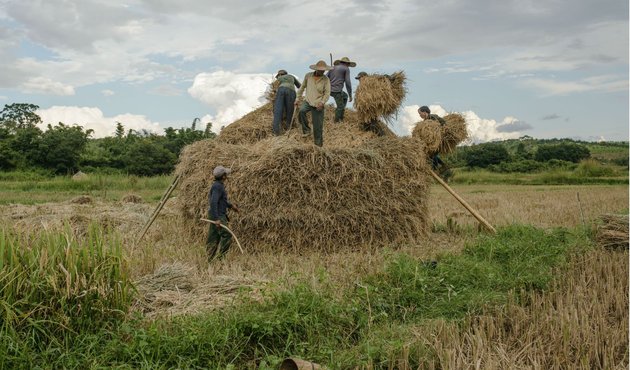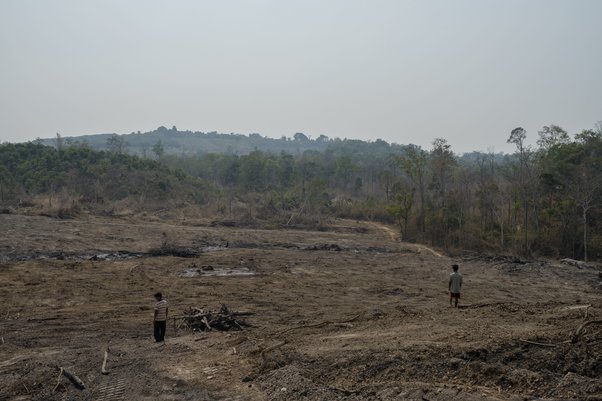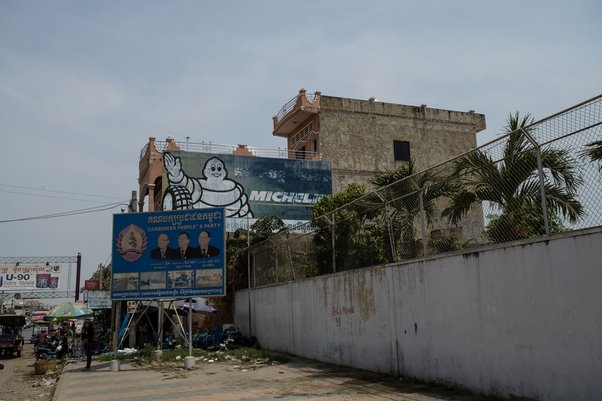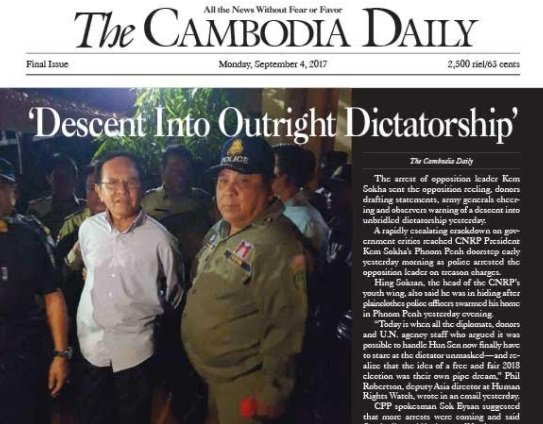New Global Witness exposé: how Myanmar’s business, political and military cronies conspired to grab farmers’ land, leaving communities struggling to survive
As Myanmar’s junta prepared to step down from government, the military set about seizing public assets and natural resources to ensure its economic control in a new era of democratic rule.
Guns, Cronies and Crops details the collusion at the heart of operations carried out by Myanmar’s armed forces in northeastern Shan State. Large swathes of land were taken from farming communities in the mid-2000s and handed to companies and political associates to develop rubber plantations.
Our investigation reveals those involved, including Myanmar’s current Minister of Agriculture and Irrigation, U Myint Hlaing, the country’s ruling Union Solidarity and Development Party, and Sein Wut Hmon, a rubber company which collaborated with the former military junta to gain control of land.
These revelations come as Myanmar’s government finalises the drafting of a national land policy, the country’s first.
The report documents the toxic legacy of these land grabs on an already marginalised ethnic-minority population, for whom little has changed since the country’s much-lauded transition to civil democracy in 2011.
Villagers told Global Witness that they had received no compensation and are struggling to earn a living and feed their families without land to grow food.
What we’ve seen in Myanmar’s land sector is a transition from military rule to a form of gangster capitalism. In many cases the army has merely swapped its uniforms for suits, with military officials and their cronies retaining firm control of the country’s land sector
By 2013, 5.3 million acres of land – 35 times the size of Myanmar’s capital Yangon – had been leased to investors for agriculture. More than a quarter of this total is now covered by rubber plantations.
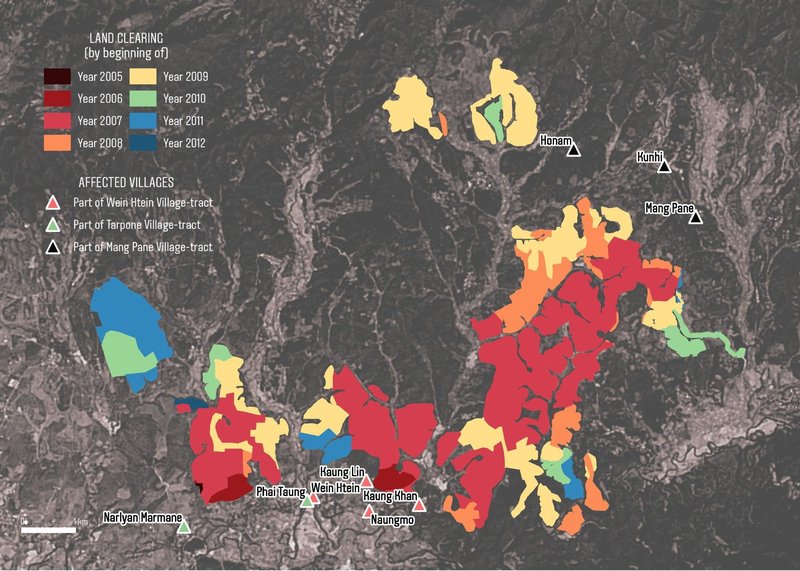
Rubber plantations investigated by Global Witness, including Sein Wut Hmon’s land holdings.
As Myanmar’s land is put up for sale after decades of trade sanctions, Global Witness is warning that foreign money risks fuelling human rights violations and playing into the hands of the former dictatorship.
The country’s new land policy and subsequent land law present a major opportunity to secure a more equitable future for the country’s citizens, and put an end to the land grabs that are blighting the country’s reform effort.
In February 2015, Global Witness wrote to Sein Wut Hmon’s owner and director, U Maung Myint, asking for comment.
In his response, U Maung Myint dismissed information given to Global Witness as hearsay, denied that the company had used military connections to acquire villagers’ land and insisted that it had consulted with local people and provided jobs and development. Global Witness also attempted to contact the Minister of Agriculture and Irrigation, U Myint Hlaing, and all other groups and individuals named in Guns, Cronies and Crops. None of them responded.
Here is an unpublished government document showing land allocations in northern Shan State in 2010 and 2011. Download in Burmese or English.
-
Guns, Cronies and Crops (English) 7.3MB (pdf format)
-
Guns, Cronies and Crops (Burmese) 1.2MB (pdf format)
-
Guns, Cronies and Crops – Annex (Burmese) 49.8KB (pdf format)
-
Guns Cronies and Crops: Maps and Infographics (English) 7.9MB (pdf format)
-
Maps and Infographics (Burmese) 7.5MB (pdf format)
-
Executive Summary (Chinese) 237.5KB (pdf format)
-
Executive Summary (Burmese) 172.2KB (pdf format)
-
Executive Summary (English) 167.3KB (pdf format)
-
Press release (Burmese) 222.3KB (pdf format)
-
Press Release (Chinese) 145.6KB (pdf format)
-
Press Release (English) 366.5KB (pdf format)
